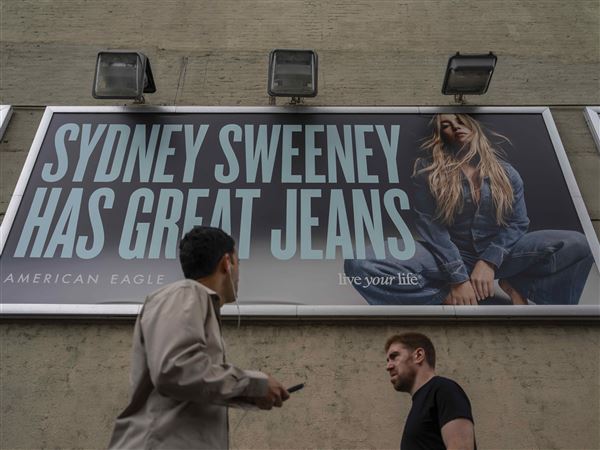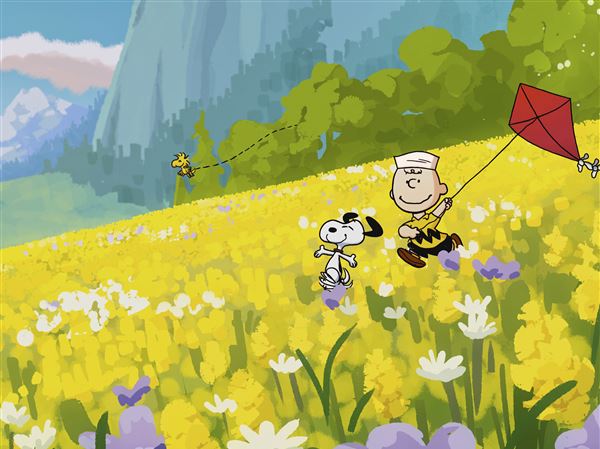The firing of a Pittsburgh casting director who called for odd or abnormal-looking people to populate a West Virginia "holler" raises a loaded question in an era of heightened sensitivity on everything from race and ethnicity to disability: How do directors find specific traits for their characters without crossing the line into offensive description?
Some people thought Donna Belajac Casting breached that line last week with a call for extras for the horror thriller "Shelter." Late Tuesday, the film's producers announced they had dismissed Ms. Belajac's firm as a result of an "insensitive casting call sent without our knowledge."
Producers Emilio Diez Barroso and Darlene Caamano Loquet apologized for the incident; they also told The Associated Press that their movie is not set in West Virginia and the state won't be mentioned.
"Shelter," starring Julianne Moore, will begin shooting in the Pittsburgh region next month.
The toll-free number listed in the casting call was not working yesterday; Ms. Belajac declined comment on the matter.
The news release called for "people to populate a West Virginia 'Holler.' " It sought people who were extraordinarily tall or short, had "unusual body shapes, even physical abnormalities as long as there is normal mobility," and with "unusual facial features, especially eyes."
It also sought a "9-12 year old Caucasian girl with an other-worldly look to her. Could be an albino ... 'Regular-looking' children should not attend this open call."
Ms. Belajac reportedly said in an interview that this was "the way it was described in the script. Some of these 'holler' people -- because they are insular and clannish, and they don't leave their area -- there is literally inbreeding, and the people there often have a different kind of look."
She said the call was not meant to stereotype people from West Virginia: "We tried to word it in a way that's not offensive."
But it was offensive to, and quickly denounced by, the governor of West Virginia, the president of the United Mine Workers of America, U.S. Sen. Robert Byrd and others.
"It's unfortunate that they took it as descriptive of West Virginia, instead of descriptive of the kind of person they were looking to cast," said Dawn Keezer, director of the Pittsburgh Film Office.
Part of the problem may have stemmed from the audience the call was intended for, Ms. Keezer said. Industry insiders -- actors, agents, directors -- rarely even blink at the highly specific descriptions they routinely receive, "but when you reach out to a larger audience [such as extras], you have to be careful how you describe things."
Jeff Olan, a Los Angeles casting director who specializes in extras, handled the casting for "Sleeper Cell," a Showtime drama about a Muslim terrorist group -- a potential minefield of stereotypes.
"You do have to be careful," Mr. Olan said. "We went for people who had that Muslim look, people with darker skin tones and features who looked like they'd belong in the Muslim world as neighbors or part of the population, or who could play a terrorist. You throw it out to them and let them decide if they can play that."
Karla Boos, founder and artistic director of Quantum Theatre, said that when she used Breakdown Services, an Internet casting service, for her recent production of "Breakfast With Mugabe," she wasn't sure how to word her descriptions.
"I asked them if was acceptable to say, 'I'm looking for a black 30-year old woman to play the wife of the president of Zimbabwe,' " Ms. Boos said. "They actually said I needed to describe the role in as much detail as possible, physical and psychological, as long as it was about the character. Then any actors could submit their photo and resume if they thought they could be believable in those roles."
Here are some of the breakdowns that local agents and casting directors have received:
• "Guido type. Not skinny or small. Psycho -- off balance. You feel that he could snap at any time. Could be a mullet guy or rocker-type. Working class."
• "300 lb woman, 27-40, a doped-up parole violator, she is seen in skimpy clothing being chased by bounty hunter, who's wielding a Taser gun. She does not have to be every bit of 300 pounds, but the bigger the better."
• "Two war veterans. Please submit any performers who are amputees."
• "In his early to mid 20s, brown-skinned, homosexual party boy with close-cropped black hair. All of his conversations, even the casual ones, are peppered with swears and curses."
• "He's the developmentally challenged attendant who takes his job very seriously. Down-syndrome."
Deb Docherty, a Downtown talent agent, said that casting directors have to be specific about what they want in an open call; otherwise, they'd waste the time of everyone who shows up for a part they don't even remotely fit.
"You can put out a wide net, but how would people react if they waited eight hours and then realized it was a complete waste of their day?" Ms. Docherty said. "You're damned if you do and damned if you don't."
Felicia Fasano, also a casting director in Los Angeles, said she sometimes gets descriptions that she finds offensive. In those cases, she goes to the writer of script.
"I say we can't put this out, nobody will want to do it, and they'll say 'Yes, change it, or don't.' It depends on how extreme it is," she said. "Anything can be soft-soaped if it's worded carefully."
First Published: February 28, 2008, 5:00 a.m.
















